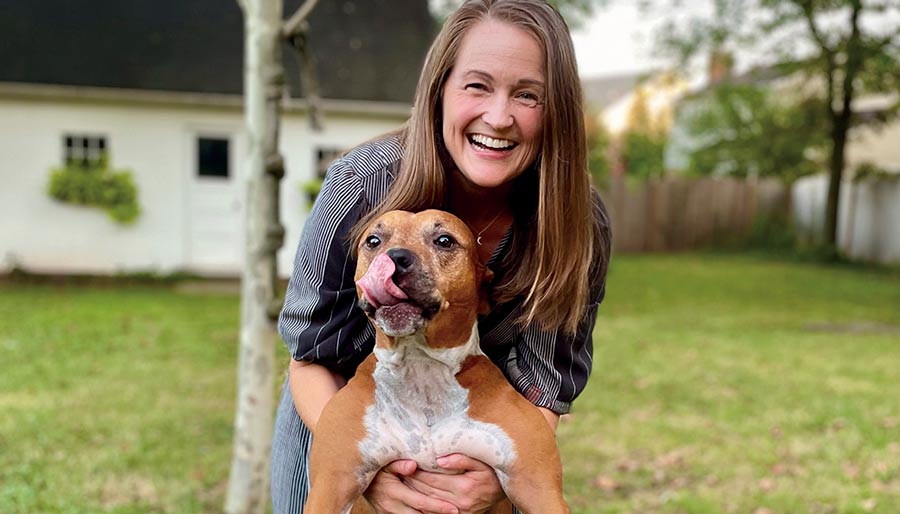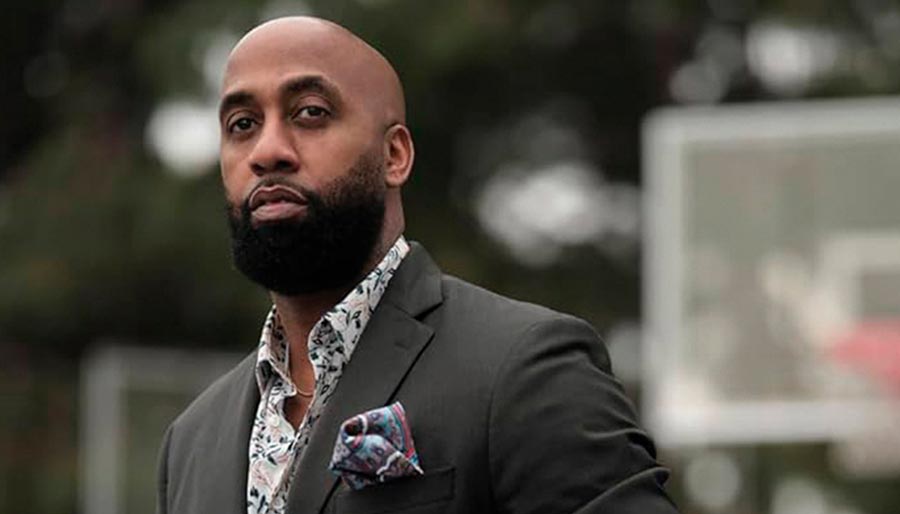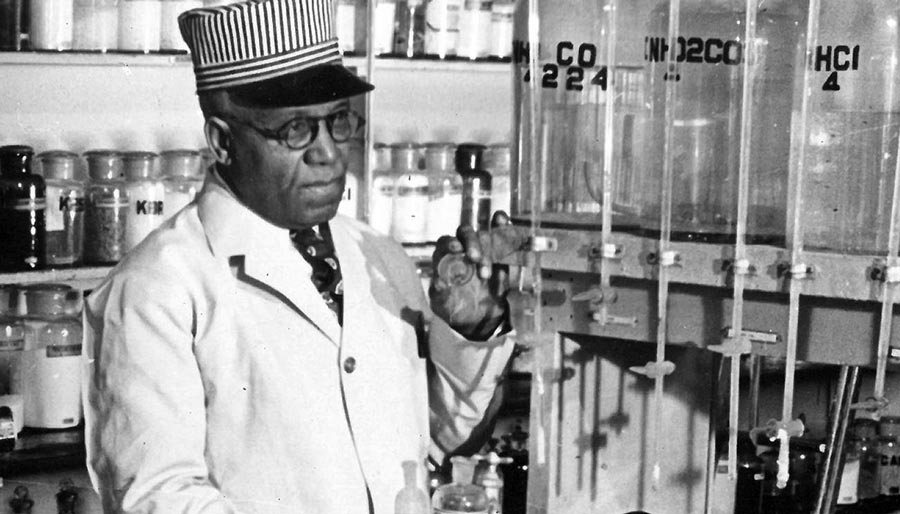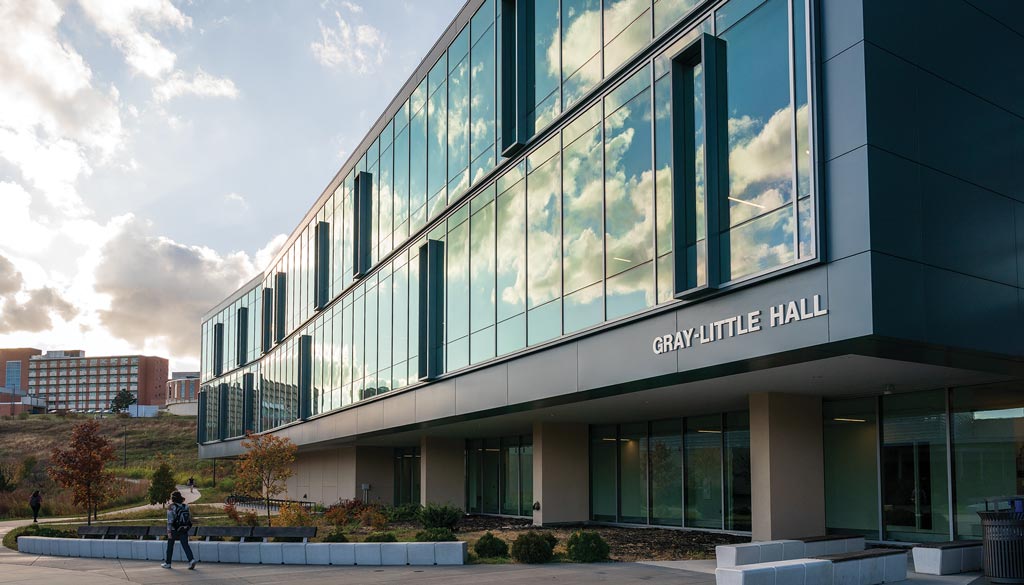Farewell, Twente Hall
KU School of Social Welfare relieved to share law school’s Green Hall home.
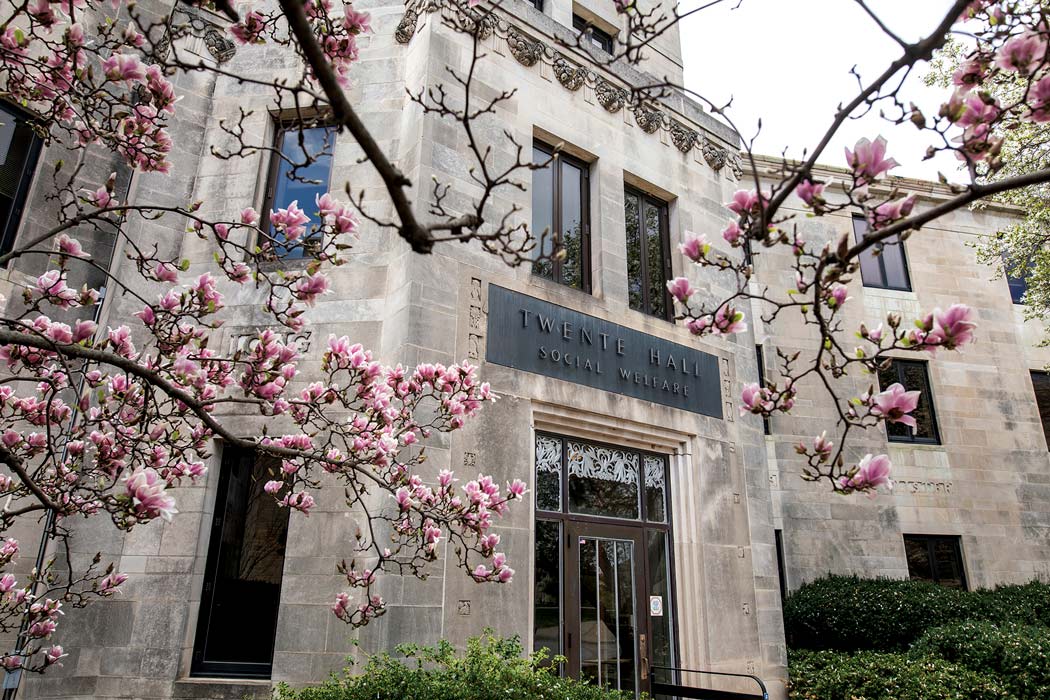
On the last Tuesday of fall classes, as a cold breeze whistled across the ridge of Mount Oread, Twente Hall silently weathered one of its final days as an academic building in the heart of campus. The hall, which opened in 1932 as Watkins Memorial Hospital and in 1974 became the first home of the School of Social Welfare, warmly embraced its few final visitors with free pizza in the foyer.
The old building’s shortcomings, though, were immediately apparent. Windows in the second-floor conference room were wide open, and most of the faculty and staff still roaming the halls were wearing T-shirts. Shorts, had they been workplace- appropriate, would not have been out of the question.
“The ability to adjust the temperature,” says Michelle Mohr Carney, the school’s dean, “doesn’t exist anymore.”
University Architect Mark Reiske, a’86, explains that Twente’s chiller and air handler are both “end of life,” as are steam traps and condensate returns. “The combination of those two things,” he says, “has meant that there’s only a very, very small time of year when they could control the temperature in their spaces.”
Even so, the lack of proper heating and cooling seems almost beside the point as compared to the rest of Twente’s shortfalls. Designed as a hospital, the space from interior hallways to the exterior walls was suitable for patient rooms but not classrooms. Or conference rooms. Or a student lounge. Each office had its own bathroom, hospital-room style, but plumbing had long since failed, and what had been a perk—private bathrooms for all!— became awkward closets. The front entry, in fact, was the hospital’s waiting room, and the free pizza was set out as enticement for faculty and staff to clear out their offices.
“The thing with this building is, it’s built for isolation, for keeping sick people away from other people,” says Assistant Dean Kristin Trendel, g’96. “It’s not a space that was built for collaboration or interaction.”
Those shortcomings are now, thankfully, history. During winter break, the School of Social Welfare moved across campus to the third floor of Green Hall, home of the School of Law. Any lingering sense of loss over leaving Twente was likely only about missing out on the springtime eruption of color by the spectacular tulip magnolia trees near the building’s entrance.
Now, Social Welfare finally has classrooms. Two, in fact, as well as a PhD seminar room. It has appropriate faculty offices, community spaces and study enclaves for students, administrative suites, and the latest and greatest in academic technology. Visiting high school students who express interest in studying social welfare are no longer steered away from the building that would be their academic home—as they have been for years.
Carney notes that it’s particularly appropriate for future social workers to learn their profession under the same roof as future lawyers: Legal aid and veterans clinics, for instance, can now incorporate social welfare students, replicating the two professions’ interaction in real-world settings.
“We will be good neighbors,” Carney says, “and we’re looking forward to good collaboration.”
Current enrollment of about 615—which includes the school’s presence on the Edwards Campus in Overland Park, partnership sites in Salina and Pittsburg, and online courses through Jayhawk Global—is expected to grow, meaning the school will soon be able to send more social workers into the Kansas workforce.
“It will be a game-changer for our ability to recruit undergraduates to this campus, and it’s a cascading effect,” Carney says. “You get students excited to be here, and eventually they go out and do great things. I don’t believe there’s any way that growing a social work program can be bad for the state of Kansas.”
The opportunity for Social Welfare to finally find its long-sought new home was made possible when Stephen Mazza, dean of the School of Law, told campus facilities planners that his school didn’t need many of the books that were housed in stacks throughout Green Hall, especially multiple copies of case reporters, all of which are now accessible online.
“There’s a dean who recognized that they’re not utilizing their building as well as they could, so how could the University put it to better use?” Reiske explains. “And I’ve got another dean who says, ‘Hey, we’re not in the greatest building for us, and I’m more than willing to share a building,’ which is the first time this has happened. No other school at the University of Kansas shares a building. So this is a great example of the collaboration that we need, and it creates a collaborative environment for two groups that would work together anyway in the private sector.
“I think that when we look back on this 10 years from now, we’ll recognize that this was a very important observation by a dean who wanted to make sure his space was properly utilized, and I hope that law and social welfare will both say, ‘Gosh, why didn’t we do this sooner?’”
As for Twente Hall, worry not: The beautiful old building will get in line for a “reset,” meaning it will likely be gutted and fully renovated, perhaps within the next 10 years. Because its configuration will never allow for classrooms, Twente will likely be fashioned into offices for University administrators who do not need to be housed in Strong Hall.
“I think it will serve that purpose really well,” Reiske says. “It just wasn’t great for a school to try to exist in.”
Chris Lazzarino, j’86, is associate editor of Kansas Alumni magazine.
Photo courtesy of KU Marketing
/
